Why Does Salt Melt Ice Faster Than Sand
You should have seen that the ice cube with salt sprinkled on it melted faster than any of the other cubes. Although salt is more efficient when one molecule of salt dissolves Sand melts ice by providing traction and absorbing heat and being at a higher temperature than the ice hence melting it.

What Makes Ice Melt Faster Science Project Education Com
Because salt particles make it harder for water particles to freeze back onto the ice the ice that is in contact with dissolved salt melts faster.

. Pure water has a freezing point that is constant. Often however cities use calcium chloride CaCl 2 another type of salt on. When an ice cube is placed in room temperature it starts to melt.
In fact it doesnt really affect ice in any significant way at all. This phenomenon is called freezing point depression. Ice melts and becomes water when its surrounding is equal to or higher than 32 degrees F 0 degree C.
Does sand melt ice faster than salt. The salt disrupts the equilibrium of water and ice slowing down the amount of water freezing into ice and speeding up the amount of ice melting into water. This interesting feature of salt and ice can be used for lots of fun and easy experiments.
The salt or sugar in an ice cube absorbs the surrounding heat energy faster than frozen water. Salt melts ice and help prevent re-freezing by lowering the freezing point of water. It is the colligative property of salt that makes ice melt faster.
Because the chemical components that make it up are much smaller than most substances salt has more molecules than sugar and sand provided they are weighed in the same amount. It operates by simply creating a firmer grip over the icy surfaces. When a thread is placed on the surface some of the melted water quickly re-freezes and traps the thread inside.
So if youre using table salt also known as sodium chloride NaCl to melt ice the salt will dissolve into separate sodium ions and chloride ions. It is used however for its ability to create friction and make surfaces less slippery. But since melting is slightly faster than freezing at room temperature the whole ice cube melts eventually 1.
Salt slows down the freezing but not the melting. Because the salt and the sugar are absorbing this heat energy so quickly water molecules are moving faster resulting in a faster melting rate. The salt will lower the melting point of the water as low as 15for rock salt and even lower for premium road salts while the friction caused by vehicles driving over sand also impedes the formation of ice.
Sand doesnt melt ice. Ice melts faster when salt is added as the salt lowers the freezing point of the water this is known as freezing point depression. Salt reduces the freezing point of water causing the ice to melt faster.
When the saltwater flows over the surface it melts the ice on its way creating channels like rivers over the surface of the ice ball. The more salt you add the lower the freezing point. When ice does form the sand is still there to add traction and the salt still does its work to lower the melting point of the ice.
The simple and perhaps confusing answer is no. Does sand make ice melt faster. Salt and sugar both causes freezing point depression therefore making the ice melt faster however salt is more effective as salt dissolves into two components and creates more interference in preventing water from freezing.
Why does salt melt ice faster than sugar and sand. For example calcium chloride lowers the freezing point more than sodium chloride. Salt will melt ice faster than the same amount of sugar because there are more molecules in salt than there are in sugar.
The working temperature range isnt the same for all types of salt. Since the ice is artificially melting faster it takes more energy than normal lowering the surface temperature to below 0 degree. Why does salt melt ice faster than sugar and sand.
This temperature 32 degree F 0 degree C is called the freezing point. Advantages of using salt Salt melts ice while sand does not. Essentially the salt makes it harder for the water molecules to bond together in their rigid structure.
Because the chemical components that make it up are much smaller than most substances salt has more molecules than sugar and sand provided they are weighed in the same amount. While it seems simple adding salt to ice water actually activates two complex and contradictory chemical reactions. Salt melts ice faster than sand would because the salt forms a bond that uses all of the heat energy to melt the ice it surrounds by breaking apart the.
Did you know you can make ice cream using milk salt and. Salt reduces the freezing point of water causing the ice to melt faster. Salt water freezes at a lower temperature than the 32 degrees F at which freshwater freezes.
When you add salt it dissolves into the water of the ice cube. When ice melts it takes energy heat from the surroundings. Why does ice melt faster with salt.
Why Salt Melts Ice. Salt reduces the freezing point of water causing the ice to melt faster. Salt slows down the freezing but not the melting.
It melts ice faster. So ice melts faster. In water salt is a solute and it will break into its elements.
In comparison to salt which is used specifically for melting ice sand is not able to lower the freezing temperature of water. It is 32 degrees Fahrenheit. Salt is made up of equal parts of sodium and chloride and works by lowering the freezing point of ice so that it melts into a liquid at a lower temperature than normal.
Salt reduces the freezing point of water causing the ice to melt faster. Because salt particles make it harder for water particles to freeze back onto the ice the ice that is in contact with dissolved salt melts faster. Sand applied over ice may sometimes cause friction which does help in melting the ice.
Up to 24 cash back Conclusion. The friction of the sand against the water on a busy road will also keep the water churning and prevent icing at temperatures near freezing. Sand melts ice by absorbing heat which will bring it to a higher temperature than ice causing it to melt.
This is because the amount by which the freezing point is lowered depends on the number. Sugar and salt lowers the freezingmelting pointing of watericetherefore making the ice melt. Making ice cream with ice and salt.
The salted cube melts faster. This makes the ice with salt on it melt faster. So ice melts faster.
When the saltwater flows over the surface it melts the ice on its way creating channels like rivers over the surface of the ice ball. However because of this disruption salt lowers the temperature of the water making the overall melting.
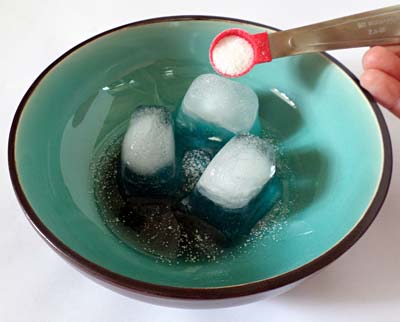
What Makes Ice Melt Fastest Science Project
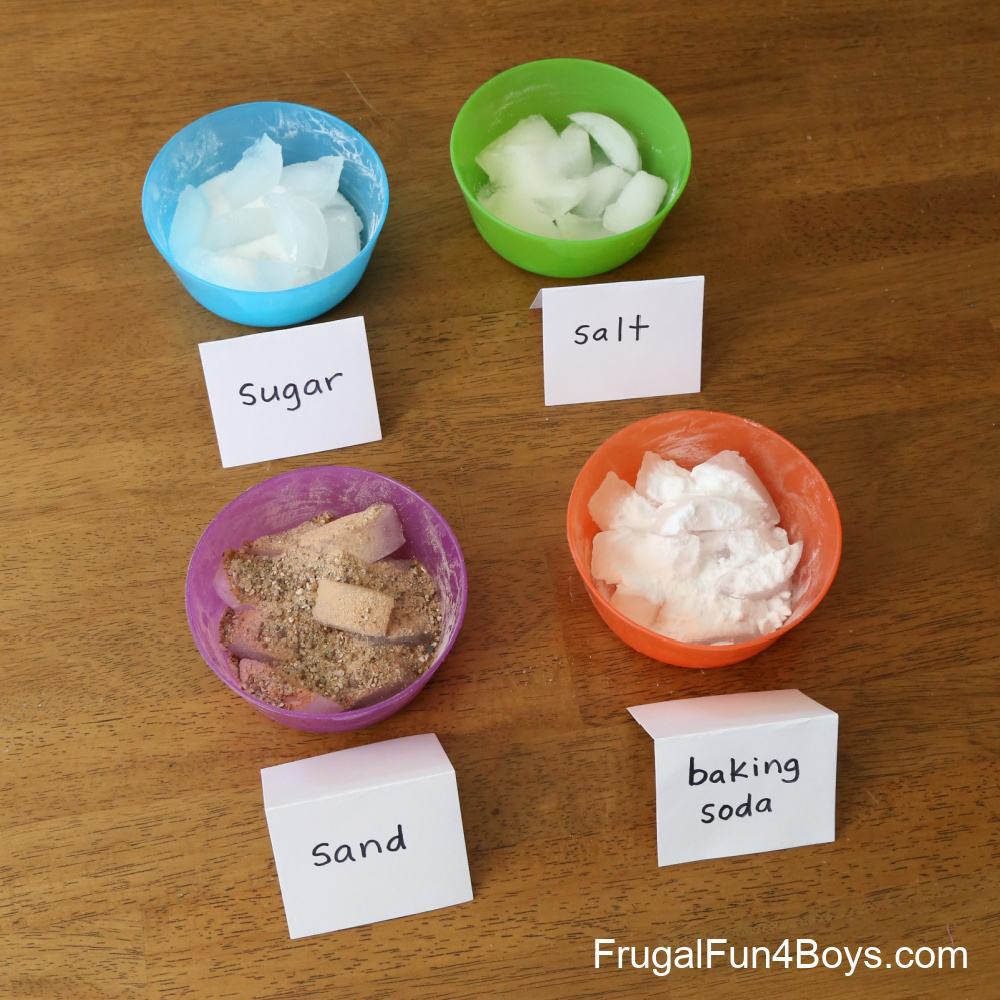
Melting Ice Science Experiments Fun Frugal Fun For Boys And Girls

What Makes Ice Melt The Fastest By Sophie Edwards
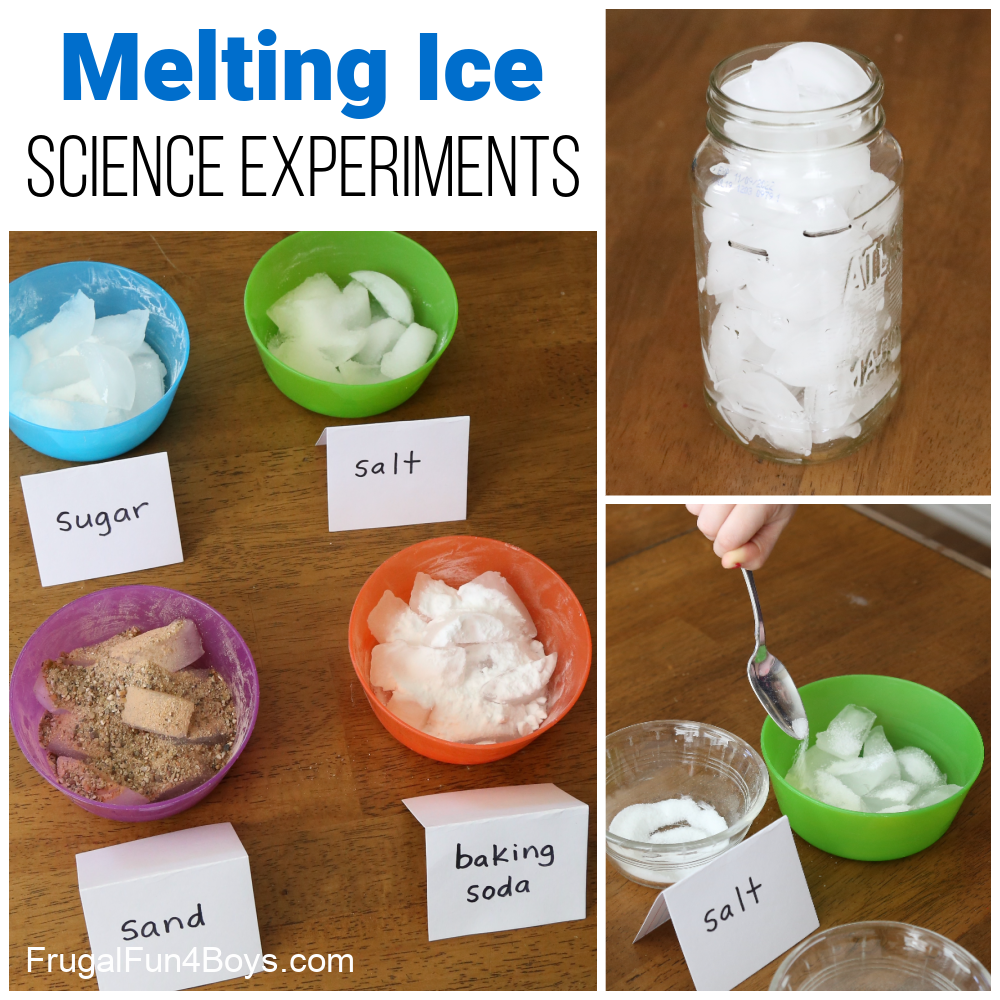
Melting Ice Science Experiments Fun Frugal Fun For Boys And Girls

Residential Waste Systems Sand V Salt To Melt The Ice Residential Waste Systems
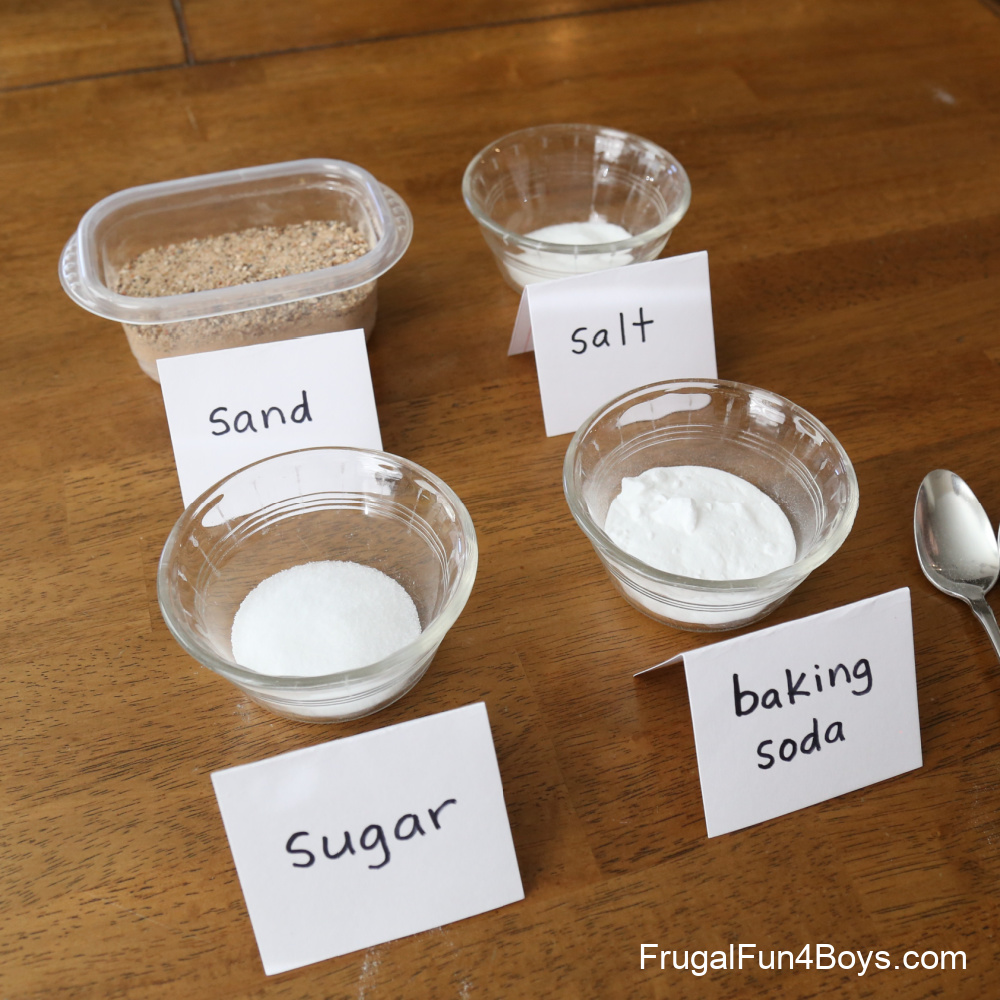
Melting Ice Science Experiments Fun Frugal Fun For Boys And Girls

What Makes Ice Melt Fastest Science Experiment Science Experiments For Preschoolers Science Crafts Preschool Stem

What Makes Ice Melt Faster By Mai Gaafar
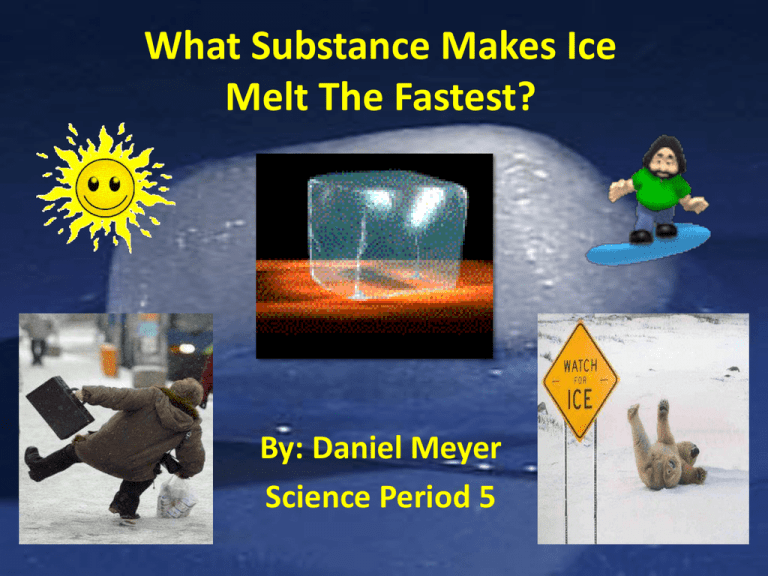
What Substance Makes Ice Melt The Fastest
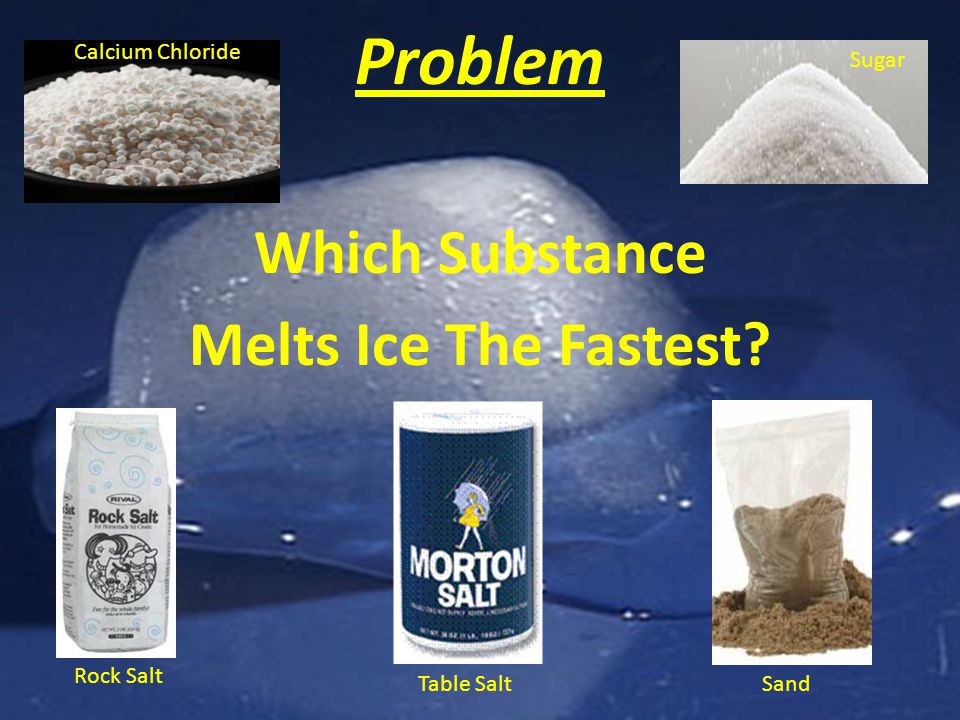
What Substance Makes Ice Melt The Fastest Ppt Video Online Download

Pin On Bob Vila S Tips Seasonal
Caitlin S Scientific Learning Science Fair Project

Science Experiments What Makes Ice Melt Faster Winter Science Experiments Kindergarten Science Homeschool Science
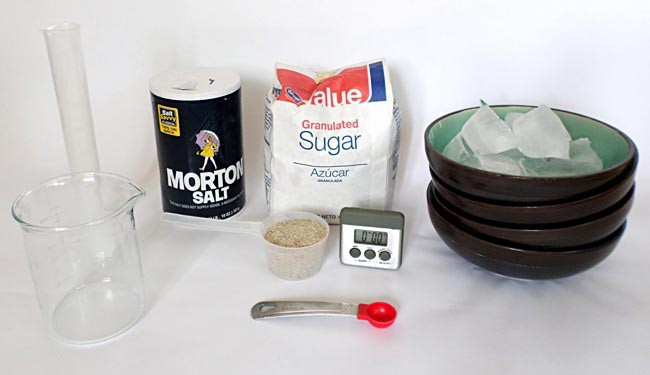
What Makes Ice Melt Fastest Science Project

Snowjam Which Melts Ice The Fastest Sand Salt Or Cat Lit By Debbie Darling

Ice Melt Is Ice Melt Here S How To Use It Ice Melting Snow Melting Types Of Ice

Melting Ice Experiment Ppt Download
Formal Experimental Record What Makes Ice Melt Fastest

The Seeley Family Science Fair Projects Science Fair Projects Boards Winning Science Fair Projects
Comments
Post a Comment